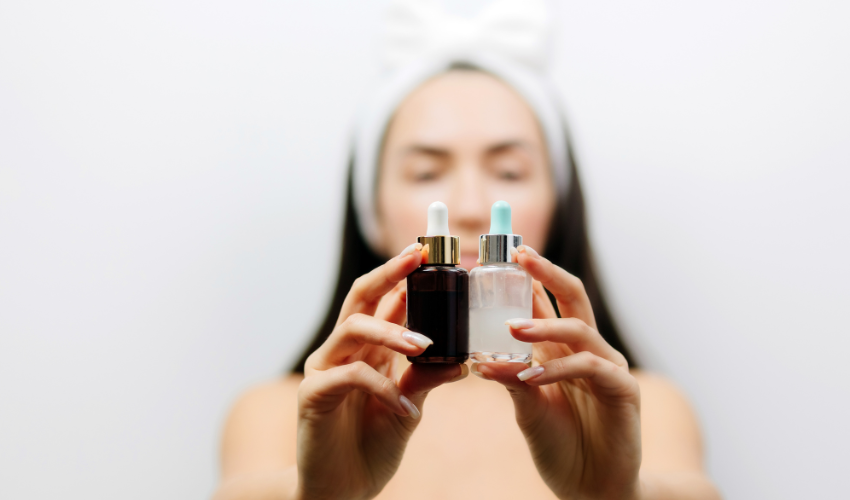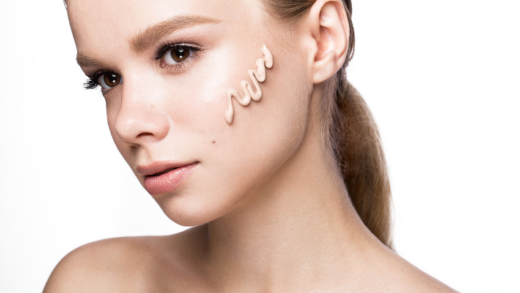Serums are a must-have in any skincare routine, as they can provide targeted treatments for specific skin concerns such as acne, fine lines, and dehydration. But with so many different types of serums available on the market, it can be overwhelming to choose the right one for your skin. In this article, we’ll guide you through the process of selecting the perfect serum for your needs.
Know Your Skin Type
The first step in choosing a serum is to identify your skin type. This will help you determine the right ingredients and formulations for your skin. Here are the most common skin types:
- Normal: balanced skin with no excessive dryness or oiliness
- Dry: skin that lacks moisture and tends to feel tight and flaky
- Oily: skin that produces excess sebum and appears shiny
- Combination: skin that has both dry and oily areas, often with an oily T-zone
- Sensitive: skin that is easily irritated by products and environmental factors
Consider Your Skin Concerns
Next, think about what you want to address with your serum. Are you concerned about fine lines and wrinkles? Do you have dark spots or hyperpigmentation? Are you dealing with acne or blemishes? Once you have identified your concerns, you can look for serums that target those specific issues.
Look for Key Ingredients
Ingredients are crucial when it comes to choosing a serum. Look for ingredients that address your specific skin concerns and work well with your skin type. Here are some common serum ingredients and their benefits:
- Vitamin C: brightens and evens out skin tone, stimulates collagen production
- Hyaluronic acid: hydrates and plumps skin, reduces the appearance of fine lines
- Retinol: reduces fine lines and wrinkles, improves skin texture
- Niacinamide: reduces inflammation and redness, improves skin barrier function
- Salicylic acid: exfoliates and unclogs pores, reduces acne and blackheads
Consider Packaging and Brand Reputation
Serums come in various packaging, including dropper bottles, pumps, and jars. Choose packaging that is airtight and opaque to protect the serum from light and air exposure, which can degrade the ingredients. Also, consider the reputation of the brand, as a reputable company is more likely to use quality ingredients and avoid harmful additives.
Tips for Applying Serums
Once you have chosen your serum, here are some tips for applying it:
- Start with clean, dry skin
- Apply a small amount of serum to your fingertips and gently massage into your skin
- Wait a few minutes before applying moisturizer or sunscreen to allow the serum to fully absorb
- Use serums in the morning and/or evening, depending on your needs
- Don’t forget to patch test new products before applying all over your face
Frequently Asked Questions
Can I use more than one serum at a time?
Yes, you can layer serums to address multiple skin concerns. Just make sure to let each serum fully absorb before applying the next.
Can I use a serum if I have oily skin?
Yes, oily skin can benefit from serums that contain lightweight, non-comedogenic ingredients such as hyaluronic acid or salicylic acid.
Can I use a serum if I have sensitive skin?
Yes, but be careful to choose a serum that is formulated for sensitive skin and contains gentle ingredients such as niacinamide or chamomile extract. Always patch test new products and start with a low concentration.
How often should I use a serum?
This depends on your skin concerns and the instructions on the product label. Some serums can be used daily, while others are recommended for use only a few times a week.
Can I use a serum with other skincare products?
Yes, serums can be used in conjunction with other skincare products such as cleansers, toners, and moisturizers. Just make sure to layer them in the correct order (thinnest to thickest consistency) and allow each product to fully absorb before applying the next.
Conclusion
Choosing the right serum for your skin can be overwhelming, but with these tips and tricks, you can make an informed decision. Remember to identify your skin type and concerns, look for key ingredients, consider packaging and brand reputation, and follow proper application techniques. With the right serum in your skincare arsenal, you can achieve healthy, glowing skin.
























